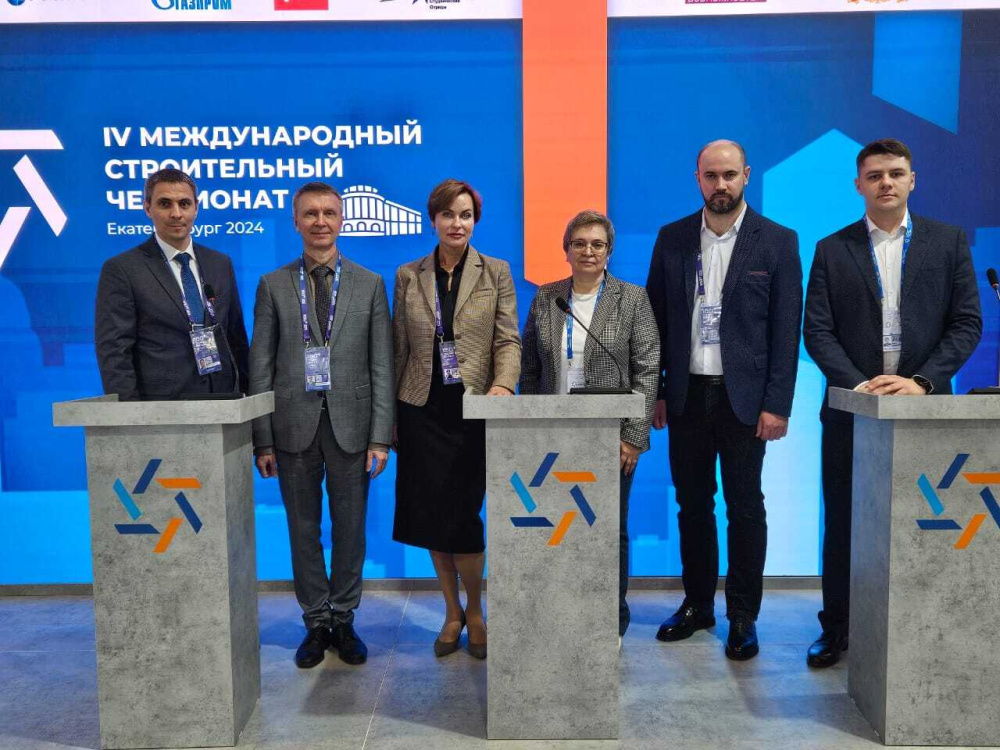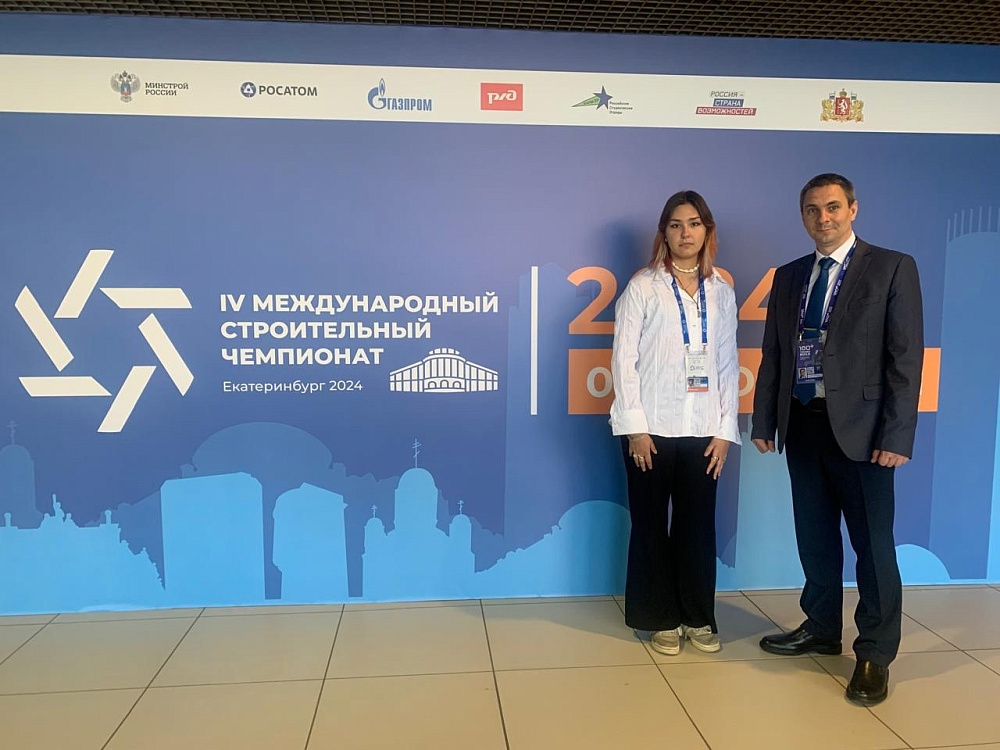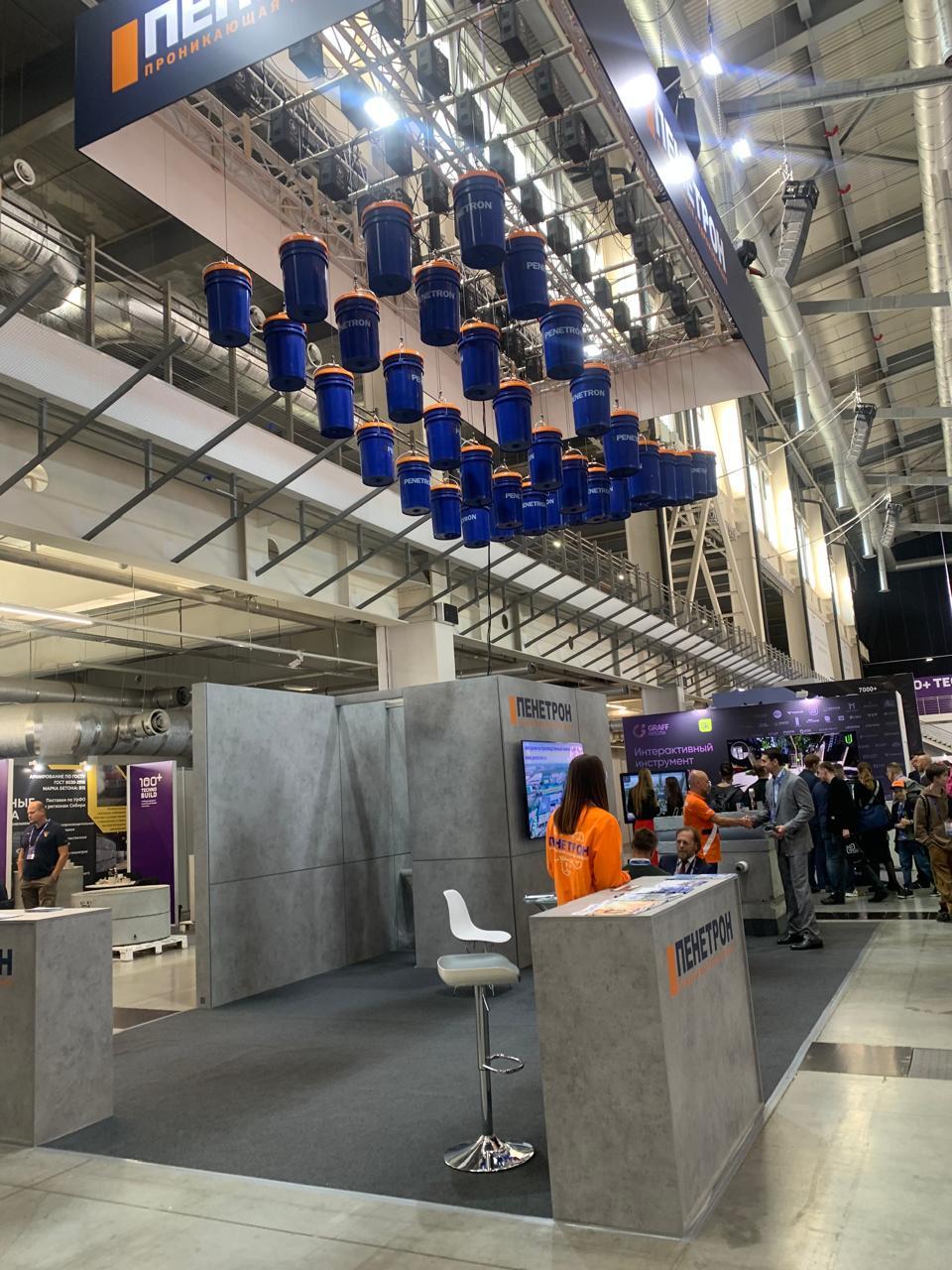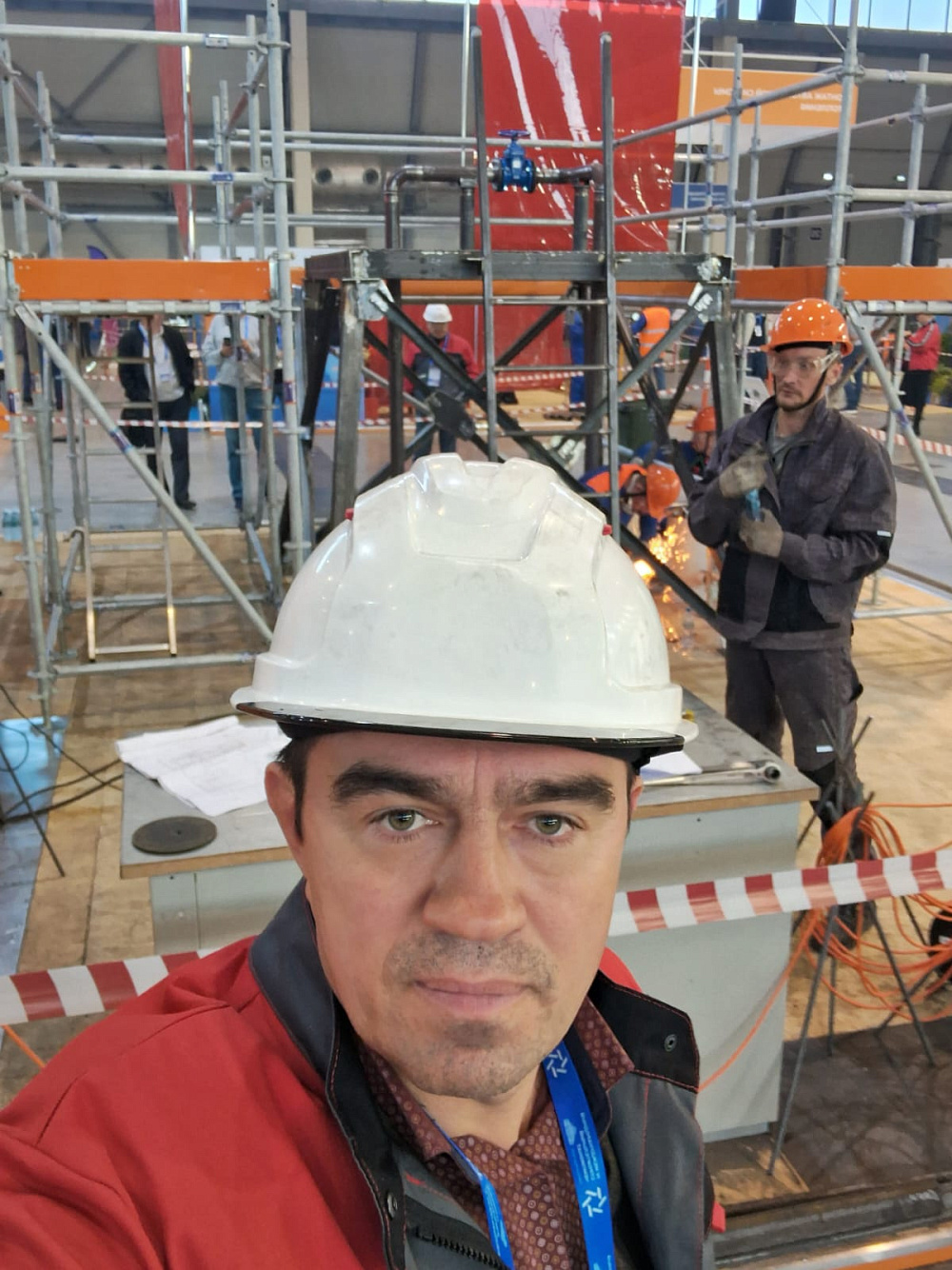 From left to right: Andrey Nikulin, Sergey Mikhailov, Svetlana Golovina, Inna Sukhanova, Dmitry Ulrich and Denis Nizhegorodtsev
From left to right: Andrey Nikulin, Sergey Mikhailov, Svetlana Golovina, Inna Sukhanova, Dmitry Ulrich and Denis Nizhegorodtsev
From 1 to 4 October, Ekaterinburg held the International Construction Week. It was attended by a delegation from SPbGASU, consisting of First Vice-Rector Svetlana Golovina, Vice-Rector for Educational Activity Sergey Mikhailov, Director of the Educational Center for Digital Competence Inna Sukhanova, Deputy Director of the Educational Center for Digital Competence Denis Nizhegorodtsev, Dean of the Faculty of Civil Engineering Andrey Nikulin, Dean of the Faculty of Environmental Engineering and Municipal Services Dmitry Ulrikh, Head of the Department of Construction Management Roman Motylev and fourth-year bachelor's student of the Faculty of Civil Engineering Angelina Koroleva.
Our university representatives took part in the IV International Construction Championship, as well as the XI International Construction Forum and Exhibition 100+ TechnoBuild, as part of which a meeting of the board of the Association of Construction Universities and the presidium of the Federal Educational and Methodological Association was held.
Andrey Nikulin shared his impressions. According to him, the key event of the forum and exhibition was the plenary session "Construction of the Future", at which representatives of developers and authorities discussed the transformation of residential spaces, the development of small towns, and trends in industrial and infrastructure construction.
– The speakers disagreed on the prospects of the "15-minute city" concept and even noted that this innovative format, actively promoted by Western countries, resembles the Khrushchev period of Soviet development, where all everyday human needs were provided within walking distance in the microdistrict. This is economically beneficial for government bodies and developers, but, of course, it harms the moral and ethical development of a person, artificially confined to the sphere of consumption. At the same time, the speakers noted the need to develop transport infrastructure, which would allow people to leave the microdistricts and reach key cultural and historical centers in 15 minutes. However, this requires significant infrastructure costs, which does not fit into the capabilities of regional budgets. As the speakers noted, the city of the future will be managed by artificial intelligence, and for its residents it will become commonplace to accept the delivery of goods, carried out by drones, at floor-by-floor reception points (new residential complexes are designed for this possibility).
Andrey Nikolaevich noted a wide range of modern software products of domestic production that use TIM models of buildings and structures to control construction production, optimize costs for the purchase of building materials and equipment. Particularly memorable were BIM scanners and solutions based on artificial intelligence, which allow improving the quality of design solutions and minimizing the "human factor" in construction.
According to Andrey Nikulin, the main result of participation in events of this level is the professional calibration of knowledge, ideas and vision of the future. In addition, this is, of course, the expansion of business contacts, "building professional bridges" with representatives of the real sector of the economy, which is very important for the development of scientific and educational areas of activity.
Representatives of the companies Ascon, BRIO, PlanRadar, Jetstyle, Gectaro, TehnoPar and others received invitations to international conferences that will be held at SPbGASU in the near future.
Inna Sukhanova and Denis Nizhegorodtsev joined the expert committee of the School League of the International Construction Championship. Roman Motylev acted as an expert of the Professional League. Angelina Koroleva, who participated in the Student League competition in the nomination "Labor Protection", was awarded third place.
Denis Nizhegorodtsev spoke about his work:
– We were able to listen to and evaluate the works of the participants in the nomination "TIM-specialist", in which schoolchildren of grades 8-11 from different regions of Russia competed. Their task was to model architectural solutions in the classrooms of a new school in Ekaterinburg. I would like to note the high level of the participants' works. I am very glad that modern educational projects on construction topics are already available to schoolchildren and allow them to get acquainted with the profession early.





